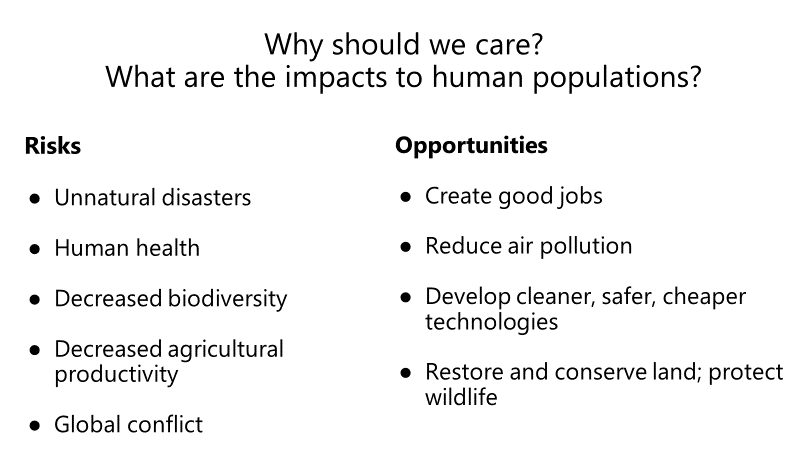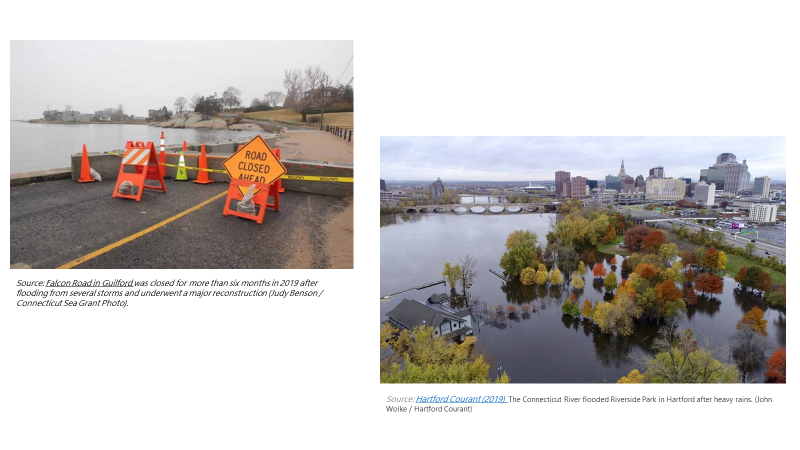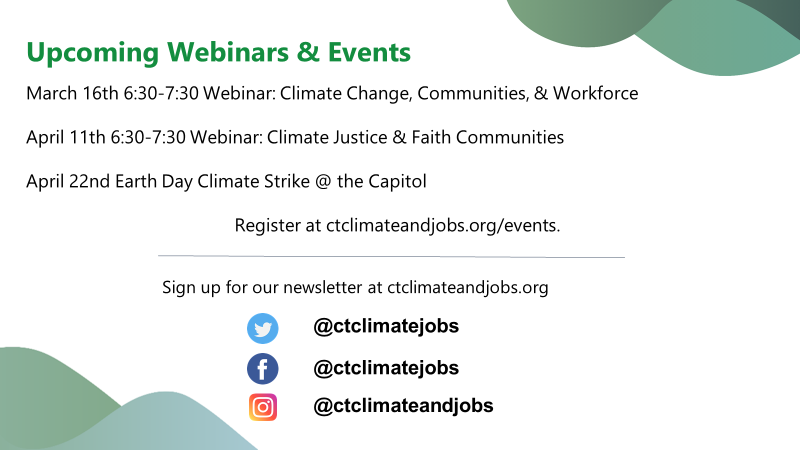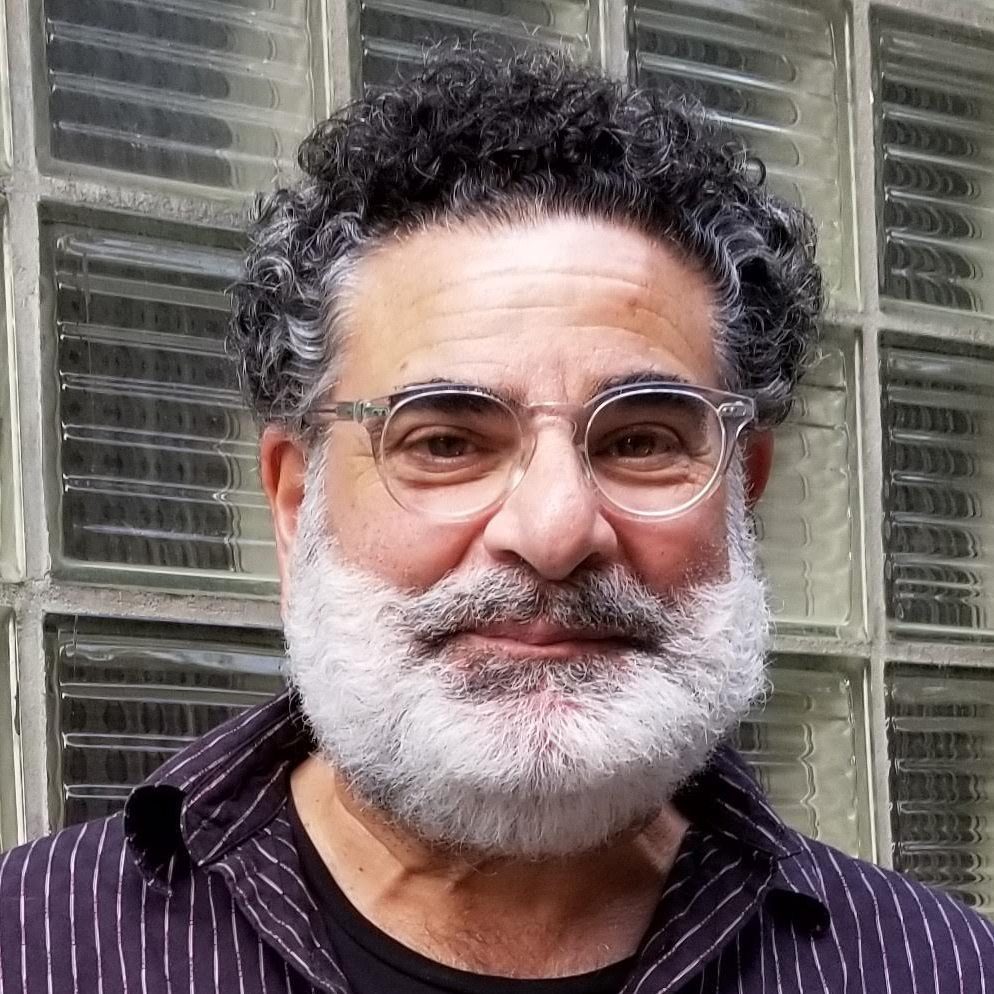Welcome to "Climate Change 101: Intro to Climate Science" brought to you by CT Roundtable on Climate and Jobs (CRCJ) @ctclimatejobs. Tonight's event will be led by Assoc. Dir. Michelle Eckman and Policy Dir. Allison Pilcher. Opening remarks by Executive Dir. Aziz Dehkan. 

Aziz Dehkhan: Good evening! Thank you for joining us tonight for "Climate Change 101: Intro to Climate Science." We will be letting people into the webinar now and begin our presentation shortly."
Aziz: Great. Let's get started. Hi everyone. Welcome to CRCJ first 2022 webinar. It's good to be with you, just a few housecleaning items for those on the webinar. There's Spanish translation available. We are recording and also live tweeting.
There's something happening out there and it is clear. What does 2022 look like on the side of climate change. We want change. We have to stop calling this "climate change" and call it what it is CLIMATE CRISIS! We are burning down the house. We encourage you to ask questions.
Michelle Eckman: Typically, when I do these things, I like a dialog. So, make sure to drop questions in the chat and ask at the end. We don't want to assume that we're all on the same page on the crisis. We want to level the playing field. Here are the things we will cover: 

Michelle: You can see that there were always climate changes, but 5,000 years ago there were no beings suffering what we are seeing now, 

Correction: 500,000 years ago. The density of the changes and the speed of climate changes that is the problem.
We.ve alwayd had "greenhouse" gases. They are what make life possible. It is how these gases function that is key. We are letting heat escape the earth and enter into the atmosphere. 

We've got a lot of data from ice cores, fossils and other objects that show us how climate have evolved over time.
Human "fingerprints" show that as GHGs increase, so does temperature. IN the last ice age the temperatures were six degrees cooler than they are now. Only six degrees. 

Allison Pilcher: If you wear a white shirt on a hot day, it will keep you cooler. Similarly ice reflects and cools the earth. However, water itself is dark and absorbs heat more that ice. We have seen ice melting at a rate that is causing the earth to become warmer. 

More people will experience heat waves in their lifetimes which poses a health risk to children and elderly. 

Here are some of the impacts of climate warming. Not all these changes are occurring simultaneous. Those who are most vulnerable to the effects usually don't have the representation to improve these conditions. 

One of the sectors we like to focus on are the employment opportunities available to manage the crisis and what we can do to remedy the effects.
Why is it so hard to deal with? One of the things we hear is that "it doesn't affect me." We also hear that "science is uncertain." 97%-100% of climate scientists agree that climate change is real, happening now, and caused by human activity. 

Another reason it is difficult is that people believe it doesn't align with their politics. No matter which party you affiliate with, concerns are not partisan.
Questions!
Rep. Michel (Stamford, CT): Thank you all for doing this. I particularly like the association between climate change and the ocean. We need to deal with the emissions, but we need to also not add stressors to the ecosystems in the ocean.
Rep. Michel (Stamford, CT): Thank you all for doing this. I particularly like the association between climate change and the ocean. We need to deal with the emissions, but we need to also not add stressors to the ecosystems in the ocean.
Lauren Schwartz: Thanks to the presenters. I have a question regarding the impact of transportation. What is the impact of the majority of people eating meat and using lawn blowers, how much would that reduce greenhouse gases?
Allison: We know cows are a great source of methane, but I don't have that data for you.
Michelle: There are hyperlinks in the slides. Conventional agriculture is one source of those gases. Some of the practices need to address this. If I come across the data, I will share it.
Michelle: There are hyperlinks in the slides. Conventional agriculture is one source of those gases. Some of the practices need to address this. If I come across the data, I will share it.
Aziz: Trees are carbon mitigators. The way we indiscriminately cut down trees is also a problem.
Aziz: The increase in people who are bike riding is making an impact. You're also beginning to see the shift from automakers to electric cars. There's a movement in Connecticut now to build more charging stations across the state. You will see this having an impact as well.
Aziz: Water is also going to be something that impacts climate. The war in Syria wasn't so much a war but a drought. Water flashpoints are going to be areas where we can also make a difference.
@threadreaderapp unroll
• • •
Missing some Tweet in this thread? You can try to
force a refresh




























